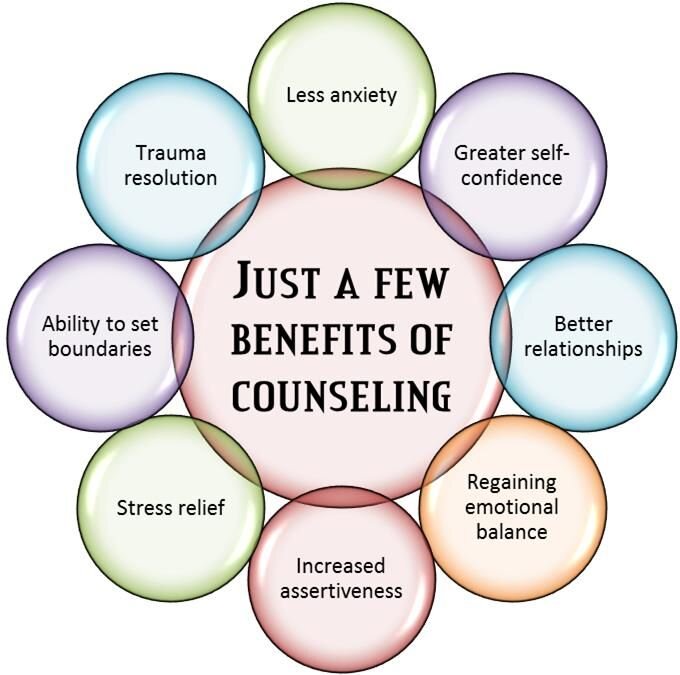Comprehensive Guide to Mental Health And Wellness: Understanding Counseling, Treatment, and Available Resources
Psychological health and wellness is a crucial facet of overall health. Understanding the different kinds of therapy and treatment can encourage individuals facing challenges. Each treatment type is created to satisfy particular demands, supplying customized support. Nevertheless, several remain unaware of the sources readily available to them. This guide intends to illuminate these options, addressing common problems and barriers. It increases an essential concern: how can one successfully navigate the intricacies of psychological wellness support?
Comprehending Mental Health and Its Importance
Psychological health and wellness functions as a crucial structure for total well-being, affecting exactly how people believe, really feel, and connect with others. It includes emotional, emotional, and social elements, affecting day-to-day functioning and quality of life. Excellent mental health promotes resilience, making it possible for people to deal with anxiety and navigate challenges effectively. Alternatively, bad mental health can bring about a series of problems, including stress and anxiety, depression, and trouble in relationships.Understanding mental wellness is essential, as it assists to decrease stigma and motivates open discussions regarding emotional battles. When required, recognition of mental health likewise emphasizes the importance of self-care and looking for aid. Individuals who prioritize their mental health are more probable to participate in healthy and balanced behaviors, keep meeting partnerships, and contribute favorably to their areas. Identifying the significance of mental health promotes an alternative method to health, ultimately enhancing the total top quality of life for people and society all at once.
:max_bytes(150000):strip_icc()/GettyImages-554392669-56a6c32d3df78cf7728feb74.jpg)
Kinds of Therapy and Therapy
Reliable mental wellness treatment often involves different kinds of counseling and treatment tailored to individual needs. One typical type is individual therapy, where a therapist functions individually with a customer to address particular concerns. Team treatment, on the various other hand, enables people to share experiences and sustain each other in an organized setting, frequently directed by a facilitator. Household therapy focuses on boosting communication and dealing with disputes within household dynamics, while couples therapy addresses connection challenges in between partners.Additionally, specialized therapy kinds, such as career counseling or grief counseling, target particular life scenarios - Couples Therapy. Cognitive-behavioral therapy (CBT) highlights the connection in between feelings, ideas, and behaviors, whereas holistic methods could integrate various techniques, including mindfulness and art therapy. Each type offers unique purposes, providing diverse paths for individuals looking for to boost their mental health and health
Usual Healing Techniques
Numerous restorative strategies play an important function in mental health and wellness treatment. Cognitive Behavioral Therapy concentrates on altering adverse idea patterns, while Psychodynamic Treatment Techniques explore unconscious processes. Humanistic approaches emphasize individual growth and self-actualization, using varied pathways for recovery.
Cognitive Behavioral Treatment
Cognitive Behavior Therapy (CBT) stands apart as a widely recognized technique in the field of psychological wellness therapy, stressing the connection in between behaviors, thoughts, and feelings. This organized, goal-oriented treatment intends to recognize and challenge negative thought patterns, allowing people to establish much healthier coping systems. CBT is typically employed to resolve numerous mental wellness concerns, including stress and anxiety, clinical depression, and obsessive-compulsive problem. Procedure typically entail the therapist and client working collaboratively to evaluate and establish particular objectives progress. Techniques utilized in CBT may consist of cognitive restructuring, exposure therapy, and skill-building exercises. With these techniques, people learn to modify their thought behaviors and processes, inevitably fostering psychological durability and improving total mental well-being.
Psychodynamic Therapy Strategies
Psychodynamic treatment strategies concentrate on checking out the unconscious mind to recognize how previous experiences shape present behaviors and emotions. Trick methods include free organization, where clients express ideas without censorship, enabling the emergence of subconscious feelings. Dream analysis is one more crucial strategy, allowing specialists to translate the symbolic definitions of dreams, disclosing surprise conflicts. Transference plays a considerable function, as customers project sensations and attitudes from previous partnerships onto the therapist, offering understandings right into relational patterns. Furthermore, specialists might utilize interpretation, helping clients obtain recognition of underlying concerns and conflicts. By promoting a deeper understanding of interior processes, psychodynamic treatment intends to promote psychological healing and personal growth, eventually boosting clients' self-awareness and connections.

Humanistic Approaches Clarified
Humanistic methods to treatment emphasize the inherent potential for individual development and self-actualization within each person. Rooted in the works of theorists like Carl Rogers and Abraham Maslow, these strategies prioritize the subjective experiences of clients, cultivating a setting of compassion and acceptance. Therapists usually use techniques such as energetic listening and unconditional favorable regard, permitting customers to discover their ideas and sensations in a risk-free room. The objective is to aid individuals identify their strengths and create a much deeper understanding of themselves, ultimately resulting in higher emotional well-being. By concentrating on individual worths and self-discovery, humanistic treatment encourages customers to take duty for their options and grow a more genuine presence.
Discovering the Right Mental Wellness Expert
Locating the ideal psychological wellness specialist is essential for reliable therapy. People must know the various sorts of specialists available, such as psycho therapists, psychiatrists, and licensed counselors. Reviewing their qualifications and experience can help assure a great match for one's specific requirements.
Sorts of Professionals
Steering via the landscape of psychological wellness treatment can be frustrating, particularly when it involves selecting the best specialist. Different kinds of mental health and wellness professionals exist, each focusing on different aspects of care. Psychoanalysts are medical doctors that can recommend medicine and address facility psychological health conditions. Psycho therapists focus on treatment and analysis, supplying therapy and screening services. Licensed counselors and social workers frequently supply assistance via talk treatment, aiding clients browse life obstacles. Marital relationship and family specialists concentrate on relational problems, intending to enhance communication and dynamics within families. Finally, psychological registered nurses offer care and support, usually functioning together with psychoanalysts to monitor medication and therapy strategies. Recognizing these duties can assist individuals in making educated choices for their mental wellness demands.
Examining Certifications and Experience
When seeking the best mental health and wellness specialist, examining their qualifications Mental Health Resources and experience is essential for making certain reliable treatment. Prospective customers must confirm that the professional holds relevant degrees, licenses, and certifications in their area of knowledge. Additionally, recognizing the therapist's specialization-- such as professional psychology, social job, or therapy-- can assist straighten their skills with the customer's details needs. Experience matters, as professionals with a strong record in treating certain conditions might provide a lot more reliable methods - Couples browse this site Therapy. Clients may also take into consideration the specialist's technique and methodologies by reviewing reviews or evaluations. Eventually, great site a complete analysis of credentials and experience can greatly affect the therapeutic connection and the general success of mental health treatment
Area Resources for Mental Health Support
Various community sources are offered to support individuals seeking psychological health and wellness aid. Regional mental wellness organizations usually supply services such as counseling, support system, and instructional programs targeted at advertising psychological health. Several areas likewise offer helplines, which attach individuals with skilled experts that can supply prompt support and guidance.Nonprofit companies often help with workshops and community events to elevate recognition about mental health issues and minimize stigma. Colleges and colleges might have counseling services readily available for pupils, making certain that young people have access to required support.Additionally, areas of praise usually develop secure spaces for individuals to discuss their mental wellness battles and find comfort within their communities. By utilizing these resources, people can browse their mental health and wellness challenges more effectively and locate a sense of belonging and understanding in their local settings.
Overcoming Barriers to Seeking Aid
Many people face substantial barriers when it pertains to looking for help for psychological health and wellness problems. Preconception usually impends big, preventing people from getting to out because of fear of judgment or misconception. In addition, a lack of recognition concerning readily available sources can complicate the decision-making procedure, leaving potential customers feeling separated. Financial constraints also play a necessary role; numerous people can not manage therapy or counseling solutions, which can exacerbate their struggles. Cultural differences might influence understandings of psychological health and wellness, making it testing for some to seek support. Geographical restrictions add too, specifically in rural areas where mental wellness experts might be scarce. Getting over these barriers needs a multifaceted method, including education and learning to lower preconception, improved access to sources, and boosted community support. By dealing with these challenges, individuals might feel much more encouraged to pursue the aid they need for their psychological wellness.

The Duty of Self-Care in Mental Health And Wellness Maintenance
Self-care symbolizes an essential part of mental health and wellness maintenance, acting as a proactive technique for people to enhance their psychological well-being. Participating in self-care activities can substantially minimize stress and anxiety, enhance state of mind, and foster resilience against life's difficulties. This diverse strategy consists of physical, emotional, and social aspects, allowing people to customize their methods to meet personal needs.Regular exercise, a balanced diet regimen, and sufficient rest are foundational components that sustain psychological wellness. In addition, mindfulness practices, such as reflection or journaling, can advertise self-awareness and emotional guideline. Social connections even more improve self-care, offering critical support and reducing feelings of seclusion.
Regularly Asked Concerns
How Do I Know if I Need Therapy?
Identifying the requirement for therapy entails recognizing consistent feelings of stress and anxiety, stress and anxiety, or unhappiness, trouble dealing with day-to-day live, or experiencing significant adjustments in behavior. Consulting a mental health and wellness expert can give quality and support.

What Should I Anticipate Throughout My Initial Therapy Session?
During the first counseling session, people can anticipate an initial analysis, discussion of issues, and facility of goals. Counselors commonly develop a safe setting, urging open interaction while laying out the therapeutic process and confidentiality.
For How Long Does Treatment Typically Last?
Treatment period differs commonly, usually depending on private demands and therapy objectives. Normally, sessions can last from a couple of weeks to several months or also years, with frequency and size tailored per individual's conditions.
Are Online Treatment Sessions as Effective as In-Person?
Study indicates that online treatment sessions can be as reliable as in-person ones, depending on specific preferences and the healing relationship. Several customers report similar benefits, consisting of convenience and accessibility, leading to efficient end results.
Can I Switch Therapists if I'm Not Comfy?
Individuals can switch over therapists if they feel unpleasant. It is vital for the therapeutic partnership to cultivate trust and comfort, and discovering a far better fit can significantly improve the performance of the treatment procedure. Conversely, poor mental wellness can lead to an array of concerns, consisting of anxiety, depression, and difficulty in relationships.Understanding mental health is important, as it helps to decrease stigma and urges open discussions about psychological struggles. Efficient psychological health treatment often includes numerous kinds of counseling and treatment customized to specific demands. Neighborhood psychological health and wellness companies often give services such as therapy, assistance groups, and instructional programs aimed at promoting mental wellness. Many communities also offer helplines, which attach individuals with experienced experts that can supply instant support and guidance.Nonprofit companies often facilitate workshops and neighborhood events to increase understanding regarding psychological health problems and minimize preconception. Colleges and colleges might have counseling solutions available for trainees, making certain that young people have access to necessary support.Additionally, areas of prayer usually develop safe spaces for people to review their psychological health and wellness battles and find convenience within their communities.